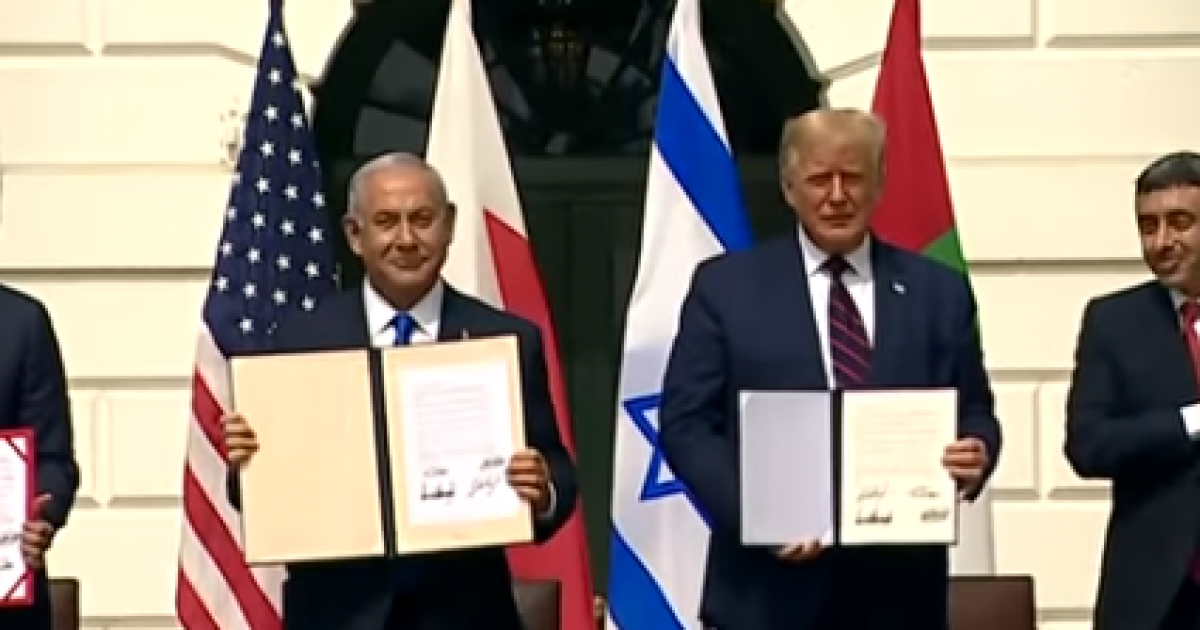
President Donald Trump’s recent ceremony concerning the recognition of Israel by the United Arab Emirates and Bahrain has been one of the largest diplomatic breakthroughs in the Middle East in recent decades.
The recognition of Israel by the UAE and Bahrain has led to speculation of Oman and other Gulf states potentially joining to recognize the Jewish state. Some experts speculate that Saudi Arabia may also normalize diplomatic relations with the state.
These developments are a solid win for diplomacy and a sign that rational presidents can use less coercive means of allowing states to reconcile and normalize their relations.
That said, given the volatile nature of the Middle East, this alleged peace may not last very long. The normalization of diplomatic relations is more of a recognition of the geopolitical reality by Arab gulf states that Iran is their primary threat in the region and Israel will play a role in checking the Shiite Islamic Republic’s attempts to expand its influence.
Pat Buchanan pointed out several key historical facts about the implications of such a deal:
In 1979, the Camp David Accords were signed in a land-for-peace deal whereby Israel returned the Sinai, captured in the 1967 Six-Day War, to Egypt. Egypt’s Anwar Sadat and Israel’s Menachem Begin both won the Nobel Prize for Peace. Yet, while peace was established between Cairo and Jerusalem, that did not inaugurate an era of peace.
Additionally, Buchanan called attention to how peace has been a fleeting prospect in the Middle East even as Israel receives diplomatic recognition:
Jordan’s King Hussein recognized Israel in 1994. Yet, since then, Israel has fought wars with Hamas in Gaza, Hezbollah in Lebanon and the Palestinians of the West Bank in successive intifadas.
If we think about it, current conflicts in the region show that peace is still somewhat of a distant prospect. For example, Syria’s civil war, which involves Russia, Hezbollah, and Iran propping up the regime of Bashar Assad, has yet to come to a conclusion.
The Yemeni civil war between the Saudi-backed regime and the Iranian-backed Houthis rages on. The U.S.-backed Saudi airstrikes have brought negative attention to Saudi Arabia’s human rights track record and have given the U.S. a bad image for greenlighting these attacks.
Shifting to Libya, there is a civil war kicking off between Libya’s Government of National Accord which is backed by Turkey and the rebels from the Libyan National Army which is receiving support from the UAE, Russia, and Egypt.
Moreover, there is now a naval standoff between NATO members Greece and Turkey over the rights of oil and gas near their maritime borders.
Not to mention, Iran and Israel have been in a proxy war over the past decade, while the U.S. has been imposing crushing sanctions on Iran.
America is still mired in conflict in Afghanistan despite the Taliban’s negotiations with the government in Kabul. The conflict in Syria is still going on and now countries such as Turkey are bringing their ethnic beef with the Kurds to Iraq and Syria.
All in all, the Middle East is a powder keg. Nonetheless, Trump should be commended for facilitating peaceful diplomatic relations between nations. From here going forward, the Trump administration should assemble a coherent vision for getting out of the Middle East altogether and letting those countries handle their own problems.
America’s interests should always come first.



